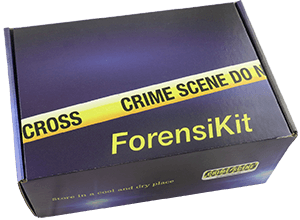Tuesday, February 6, 2024 – 8:30 a.m.
Dr. Gerald Ericson was Blake Jenson's cardiologist.
Detectives Armstrong and Murphy interviewed him at the Yoknapatawpha County Sheriff's Department.
Participants:
- Detective T. Armstrong
- Detective S. Murphy
- Dr. Gerald Ericson
Detective Armstrong: Thank you for taking time out of your schedule to see us.
Dr. Gerald Ericson: No problem. I had to cancel a surgery, but the patient probably wouldn't've lived much longer anyway. Joking! I'm joking. I've always wanted to say that whenever I was called into one of the endless cycle of meetings with hospital administrators. I apologize.
Detective Murphy: Well, you're busy, so let's get right to it. Would you explain a little about Wolff-Parkinson-White Syndrome?
Dr. Gerald Ericson: Before I get into WPW Syndrome, let me start by telling you a little about how your own heart works.
Detective Armstrong: Keep it simple, if you can.
Dr. Gerald Ericson: Assuming you don't want me to take my socks off so that Mr. Atria can talk to Mr. Ventricle, I'll just say that in a normal heart, electrical signals follow a certain path from the atria, the upper chambers of the heart, to the ventricles, the lower chambers of the heart. That path—the atrioventricular node—is what causes the heart to beat properly. Do you follow so far?
Detective Armstrong: The electricity traces a path from the top of the heart to the bottom.
Dr. Gerald Ericson: Exactly. In people with WPW Syndrome, there's a shortcut, and the electrical signal gets to the ventricles too soon.
Detective Murphy: How common is it?
Dr. Gerald Ericson: It's hard to say because getting a diagnosis can be difficult. Symptoms can include episodes of dizziness, rapid heart rhythm, or fainting, but a person also may not show any symptoms at all.
Detective Armstrong: Is this condition dangerous?
Dr. Gerald Ericson: That depends.
Detective Armstrong: How did I know you were going to say that?
Dr. Gerald Ericson: I could quote to you from the literature, but I don't think that's really what you want to hear.
Detective Murphy: How would you know if I suffered from WPW Syndrome?
Dr. Gerald Ericson: Not by looking at you. If you experienced one or more of the symptoms, I'd order an electrocardiogram to see what was happening, and that's when I'd know.
Detective Murphy: Would my doctor, who has treated me just about all my life, know if I had the extra electrical pathway in my heart?
Dr. Gerald Ericson: Only if your doctor had ordered you an electrocardiogram. Of course, that's not the only way to diagnose WPW, but it's the least invasive.
Detective Armstrong: If the victim touched an electrical wire, would that trigger a heart attack?
Dr. Gerald Ericson: Well, if you're plugging in your cell phone, no. But, if the insulation is worn off, exposing the wire, anyone touching it could have a heart attack. Just as if one sticks a knife into a toaster that's plugged in, one risks cardiac arrest.
Detective Armstrong: Are people with WPW more susceptible?
Dr. Gerald Ericson: How any specific person is going to respond to any specific stimulus is not an exact science. The longer I work in this field, the more times I've seen that to be true.
Detective Murphy: So two people with WPW could each touch an exposed live wire, and one might die, but the other might not?
Dr. Gerald Ericson: Exactly, depending on the nature and severity of the condition, as well as other factors unrelated. Not only that, but a person with WPW could touch a live wire one day and feel nothing more than a tingle and then touch the same wire the next day and suffer cardiac arrest.
Detective Murphy: Can you tell us if Blake Jenson, in particular, could've died from coming into contact with a low level of electricity that wouldn't have been fatal to a person without WPW?
Dr. Gerald Ericson: I can tell you it's a possibility but not a certainty.
Detective Armstrong: Hypothetically, Dr. Ericson, if you wanted to kill a hospital administrator who suffered from WPW Syndrome, how would you do it?
Dr. Gerald Ericson: I would throw that person off the roof of this building with unrestrained glee. Hypothetically, of course.
Detective Murphy: You give us a call before you start working out the details.
Detective Armstrong: Thank you very much for your time, doctor.
Dr. Gerald Ericson: Good luck with your investigation. Blake was a fine young man. I never expected him to die so young.
Interview ended – 8:58 a.m.

